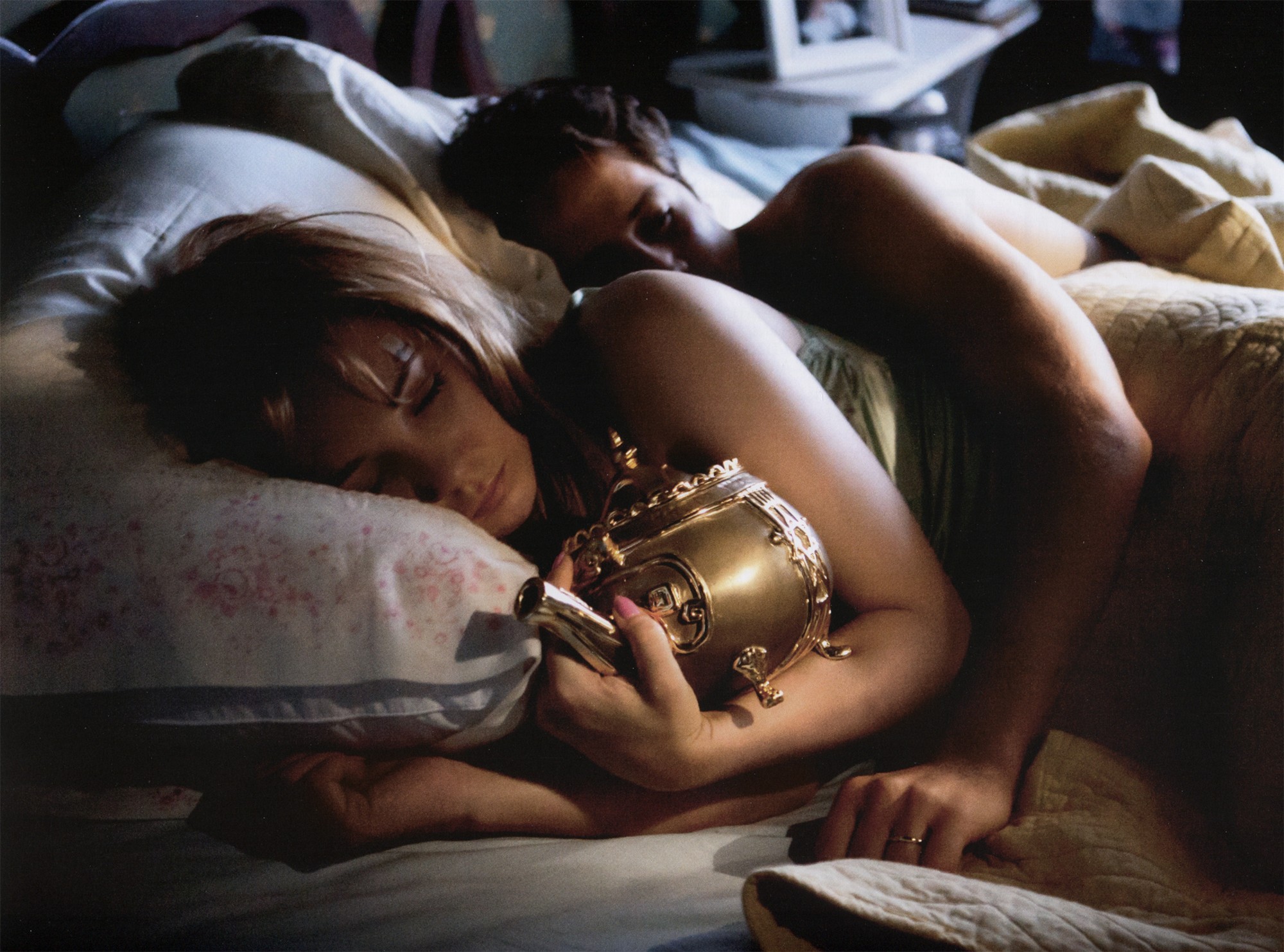
The Brass Teapot is a black comedy with a premise straight out of Aesop or The Twilight Zone: a struggling young couple come to own a teapot that generates cash in exchange for pain. How much hurt will they inflict on themselves and others for money?
John and Alice Macy (Michael Angarano and Juno Temple) are a young married couple clearly in love despite their relatable 20-something struggles to find employment and manage their finances. The teapot comes into their lives after Alice steals it from the site of a minor car accident (rigged by the previous owner of the teapot to generate a payday on the drivers’ pain). She discovers the teapot’s powers after accidentally burning herself with a curling iron, and continues to injure herself until they have enough to pay the bills and then some.
A lot of the first act of the movie treads dangerous waters by depicting self-harm and quasi-consensual partner violence and BDSM sex with a decidedly lighthearted and quirky tone set by director Ramaa Mosley. I can easily see this triggering some people. I was able to buy into it as twisted dark comedy, but your mileage may vary.
Of course the teapot’s cruel bargain becomes more and more vicious. Alice and John find diminishing returns on their own pain, so they bring the teapot around others in pain (cue hijinks like crashing a maternity ward). Then they have to turn to emotional pain, and so they lay all their cruel thoughts and marital indiscretions out on the table to make rent. Finally they contemplate inflicting violence on others to keep the teapot’s magic going.

There is so much in The Brass Teapot that makes it sound like the movie will be painful (appropriately enough) to watch. There are plenty of things to cringe at even if you can get past the pitfalls of the premise. The film unfortunately employs some racist caricatures, like poor Stephen Park as Dr. Ling, who attempts to save the Macys from the teapot by employing his ancient Chinese wisdom, as well as a bizarre subplot about the Hasidic nephews of the previous owner (who do at least bring about one hilarious joke toward the end of the film). The Brass Teapot dabbles in class commentary (Alice and John are middle class kids unable to capitalize on their privilege, and we see that their high school social circle has divided into the haves and the have-nots), but it is never properly developed as the plot focuses on the more simple moral questions presented by the teapot.
Given some of these sensitivity shortcomings, I became particularly worried as the plot carried forward that Alice was going to become the Eve to John’s Adam and he was going to be the innocent man seduced by her greed. Fortunately I think The Brass Teapot sidesteps that trope. While Alice is usually the one to raise the stakes to get more money out of the pot, she also pulls back in at least one crucial scenario where John was ready to bring the pain. The character works because Juno Temple balances her admirable willingness to play an unsympathetic character with her ample charisma, so you end up at least being willing to continue to watch Alice on screen if not outright liking her.
Overall, I feel The Brass Teapot demonstrates the value of commitment in storytelling. Even when it is to the film’s potential detriment and the alienation of its audience, this movie doesn’t shy away from the horror of its premise. I found myself completely in this movie’s grip, absolutely believing that anything might happen as the stakes got higher and higher, while somehow still able to root for the characters and laugh at the comedic moments. It is the kind of movie I’d enthusiastically recommend if I thought my experience was universal, but I realize this movie is probably—oh no, someone please stop me, don’t let me say it—not everyone’s cup of tea.
—————————————————-
Robin Hitchcock is an American writer living in Cape Town, South Africa, and she is terribly sorry for that last sentence.
